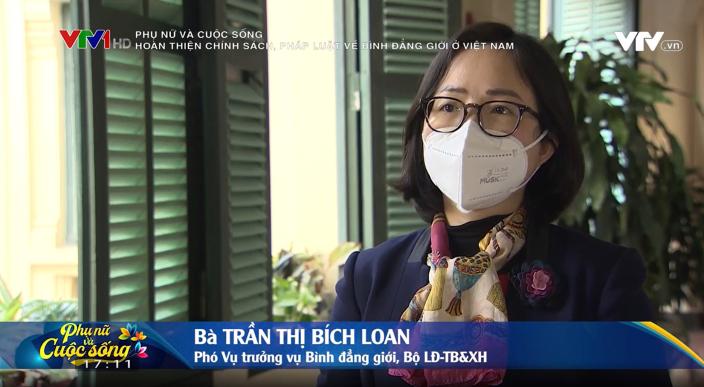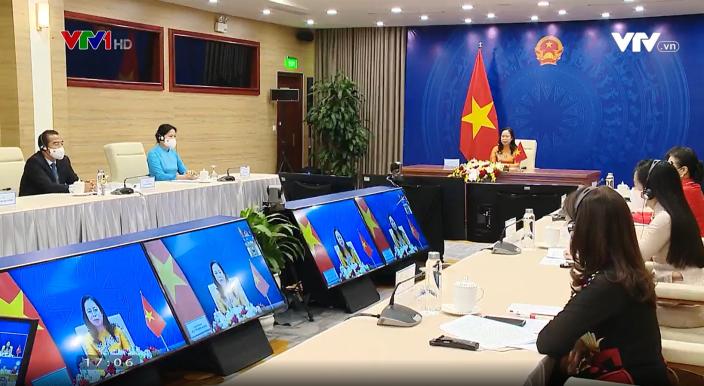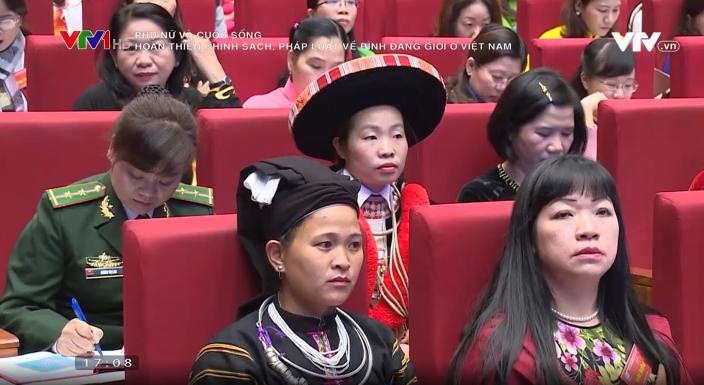In Vietnam, the quality contribution of women is prevalent in all areas. However, there is limited recognition of their contribution values.
The reason is not only due to gender stereotypes that are inhibiting women's development, but also due to the inadequacies of practicing the Gender Equality Law, and the lack of gender mainstreaming in many legal documents.

Ms. Le Thuy Hanh, Gender Equality and Women's Agency Program Manager, Oxfam in Vietnam
To achieve the goal of gender equality, in addition to the continuing efforts to transform gender stereotypes, experts recommend policy changes as follow:
- Legal documents need to be amended and supplemented (e.g. Law on Gender Equality, Law on Elections, Law on Organisations...) towards substantive and meaningful equality, for consistent management and use of female human resources, heading towards the exclusion of gender inequality in family relations, society, organisations and in all areas of social life;
- Consistency in viewpoints & policies, and specific & complete guidance from central to local levels;
- It is necessary to have appropriate indicators of participation and benefits in policies of each gender, thereby contributing to creating favorable conditions for both women and men to benefit from development outcomes in an equitable and equal manner;
- There should be a monitoring and feedback mechanism;
- There should be a mechanism to encourage localities that have good practices in promoting gender equality.

Ms. Tran Thi Bich Loan, Deputy Director of the Equality Department, Ministry of Labor - Invalids and Social Affairs
Watch the full reportage "Improving policies and laws on Gender Equality in Vietnam" on VTV1: https://www.youtube.com/watch?v=VGJH9MQc6ic
Review of Gender Equality Law Project implemented by Oxfam and MOLISA: /.../review-gender-equality-law...

--------------
Ở Việt Nam hiện nay, không lĩnh vực nào thiếu vắng sự cống hiến có chất lượng của nữ giới. Tuy nhiên, theo thống kê, sự công nhận về giá trị của sự cống hiến này còn nhiều hạn chế.
Nguyên nhân không chỉ do định kiến giới đang kìm chế sự phát triển của phụ nữ, mà còn do những bất cập trong thực hành Luật Bình đẳng giới, và thiếu lăng kính giới trong nhiều văn bản quy phạm pháp luật (VBQPPL).

Để có thể tiến tới mục tiêu bình đẳng giới, bên cạnh tiếp tục các nỗ lực về chuyển hóa các định kiến giới, nhiều chuyên gia kiến nghị các thay đổi về chính sách:
- Các VBQPPL cần được sửa đổi, bổ sung (ví dụ Luật Bình đẳng giới, Luật Bầu cử, Luật về tổ chức…) theo hướng bình đẳng thực chất, để thống nhất quản lý và sử dụng nhân lực nữ theo hướng loại trừ bất bình đẳng giới trong quan hệ gia đình, xã hội, tổ chức và trong mọi lĩnh vực của đời sống xã hội
- Nhất quán về quan điểm & chủ trương, và có hướng dẫn cụ thể & đầy đủ từ trung ương đến địa phương
- Cần có các chỉ tiêu phù hợp về sự tham gia và hưởng lợi trong chính sách của từng giới, từ đó góp phần tạo điều kiện thuận lợi cho cả nữ giới và nam giới được hưởng lợi từ các kết quả phát triển một cách bình đẳng và công bằng.
- Cần có cơ chế giám sát và phản hồi
- Cần có cơ chế khuyến khích các địa phương điển hình có thực hành tốt về thúc đẩy bình đẳng giới

Xem toàn bộ phóng sự "Hoàn thiện chính sách, pháp luật về Bình đẳng giới tại Việt Nam" trên VTV1: https://www.youtube.com/watch?v=VGJH9MQc6ic
Dự án Rà soát Luật Bình Đẳng giới do Oxfam và Bộ LĐTBXH thực hiện: /.../review-gender-equality-law...
